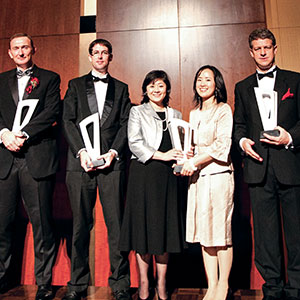How I got handbagged by Margaret Thatcher
In death, as in life, she was divisive and, no doubt, relished the fact. When news came of the death of Baroness Margaret Thatcher at the age of 87, few could have been surprised.
Strokes had weakened her physically, while dementia had ravaged her famed mental acuity. In her final months, she depended on the generous hospitality of the Barclay brothers for her suite at The Ritz London; her own five-storey home in London was no longer manageable.
The grand funeral finished—a state event in all but name, and one in which she’d had a hand in planning—the post-mortem analyses began at once. And on what did the column inches and airtime focus? Well, the obvious: Europe’s first female prime minister; an unprecedented 11.5 years in the post; three landslide victories; and the Falklands War.
All but the most left-wing publications chose to ignore (or at least, gloss over) the poll tax debacle in 1990. But, this was arguably the final straw that made even her closest colleagues waver.
Understandably, the main debate was whether Thatcher had made the UK a better place in which to live. She had made it possible for countless families across the country to buy their council homes (although she did nothing to encourage the building of inexpensive housing for those who still needed to rent).
Meanwhile, countless others would curse her for destroying their entire communities. The devastation of the South Yorkshire coalfields was the price of a political triumph over the despised mineworkers’ union led by the equally despised Arthur Scargill. However, Thatcher never gave a thought to what might be put in place to assist the communities that were so drastically affected.
However, it should be remembered that, while Prime Minister Harold Wilson (1974–76) closed down many more coalmines than Thatcher, he was never criticised for doing so.
In much the same way, Thatcher lived with the “milk-snatcher” sobriquet, despite the fact that the policy of stopping free milk in schools for those aged over seven was not her idea; it was merely a policy implemented during her time as education minister.
Margaret Thatcher was a complex individual. She was fiercely intelligent but, perhaps, emotionally incontinent. While her skills as a parent certainly must be called into question, there are many accounts of her acts of kindness.
The Iron Lady—a tag that the Soviet press intended as a barb but which she embraced wholeheartedly—had a softer side to her nature that only a few who were truly close to her saw.
Much of this is perhaps explained—or accounted for—in Charles Moore’s riveting Margaret Thatcher: The Authorized Biography, Volume One: Not For Turning, in which he examines her early life, which Margaret Hilda Roberts had chosen not to examine in the two volumes of her autobiography.
Moore tells of a childhood and early upbringing that many would have found stifling—as Thatcher perhaps did—and how she tried to avoid the dowdiness that she perceived in her mother. She took elocution lessons when quite young, which is the reason for the over-articulated tone that she never quite lost. That was despite employing one of the UK’s best speech trainers to help her lower the pitch of her voice to sound less strident.
On meeting Thatcher, you were struck by how feminine she was: petite, with a wonderful complexion and the brightest of eyes—all the more devastating when you were on the sharp end of the handbag as I was on one of her last visits to Tokyo.
She had agreed to speak at a BCCJ breakfast but, at the last minute, tried to pull out of the popular event. Pressured to speak, she declined to join the group for breakfast and made a somewhat lacklustre effort, demanding questions from the floor and embarrassing the poor individual who asked the first one.
Afterwards she rounded on me and accused the chamber of being disorganised and amateur. Champion as I always was for the BCCJ, I defended its reputation and told her that I was appalled by her lack of professionalism.
On the following evening, however, Thatcher sought me out at a reception at the British ambassador’s residence and apologised for her bad mood and “careless comments”. Just one month later, Downing Street asked if I would be willing to accept an OBE in the New Year’s Honours list. A coincidence, certainly, but a lovely bit of irony.






